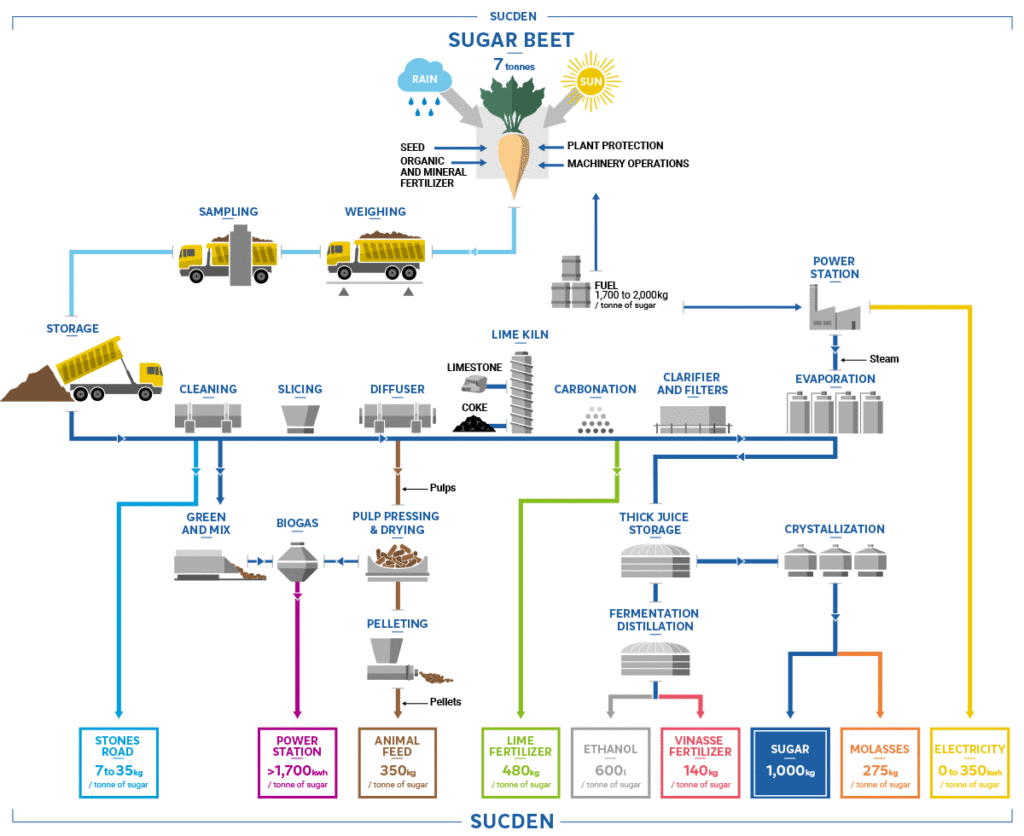Industrial
Our commitment to product quality in Russia is such that Sucden has developed advanced production capabilities to complement our agricultural facilities. We now have two sugar plants in the Lipetsk region, the Dobrinsky plant and the Eletsky plant, the Atmis Sakhar plant in the Penza Region, and the Tbilissky sugar plant in the Krasnodar region.
ADVANCED CAPABILITIES
Sucden’s direct involvement in sugar processing in Russia began in the late 1990s. Our continuous introduction of advanced technologies across the plants has enabled us to increase the intake of sugar beets. Following the acquisition of the Eletsky sugar plant in 2019, one of the top three sugar plants in Russia with a processing capacity of ten thousand tonnes of sugar beet a day, we now have four advanced manufacturing plants with an annual capacity of around 4,750,000 tonnes. Similarly, the resulting production of sugar has grown to 800,000 metric tons.
Sustainability is of equal concern to us as efficiency. In addition to sugar, our plants can co-produce approximately 240,000 tonnes of molasses each year. We have also pioneered the production of dry pulps with an annual capacity of around 240,000 tonnes of pellets a year.
Since 2018, the sugar beet plants have engaged in a certification strategy, addressing environmental, health & safety, supply chain and social practices. Dobrinsky and Atmis-sakhar have achieved the ISO 14001 (Environmental Management System), ISO 9001 Quality Management and ISO 45001 (Health & Safety Management) certifications. Tbilissky should be next in 2021.
Sucden’s plants play a significant role in their local economies and employ around 1,700 permanent and 160 seasonal workers…
Sugar beet processing

Sugar beet mills are normally close to the farms where the beets are grown. At the mill, the raw beets are cleaned, sliced and then put through a process that extracts the sugar by means of diffusing with water, purification, filtration, evaporation and crystallization. Available by-products include soil and stones, animal feeds, fertilizer, molasses and biogas.